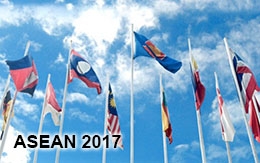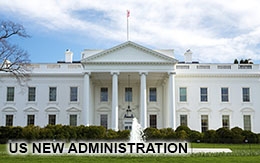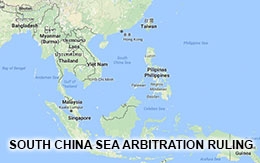The 10th South China Sea International Conference: Cooperation for Regional Security and Development
The 10th International Conference on the South China Sea hosted by the Diplomatic Academy of Vietnam (DAV), the Foundation for East Sea Studies (FESS) and the Vietnam Lawyers’ Association (VLA) took place in Da Nang on 8-9 November, 2018.
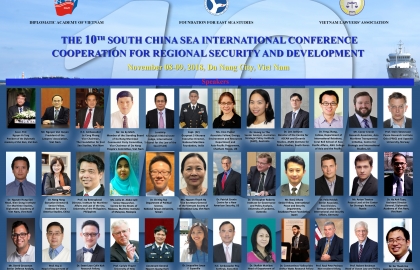
| OPENING SESSION | |
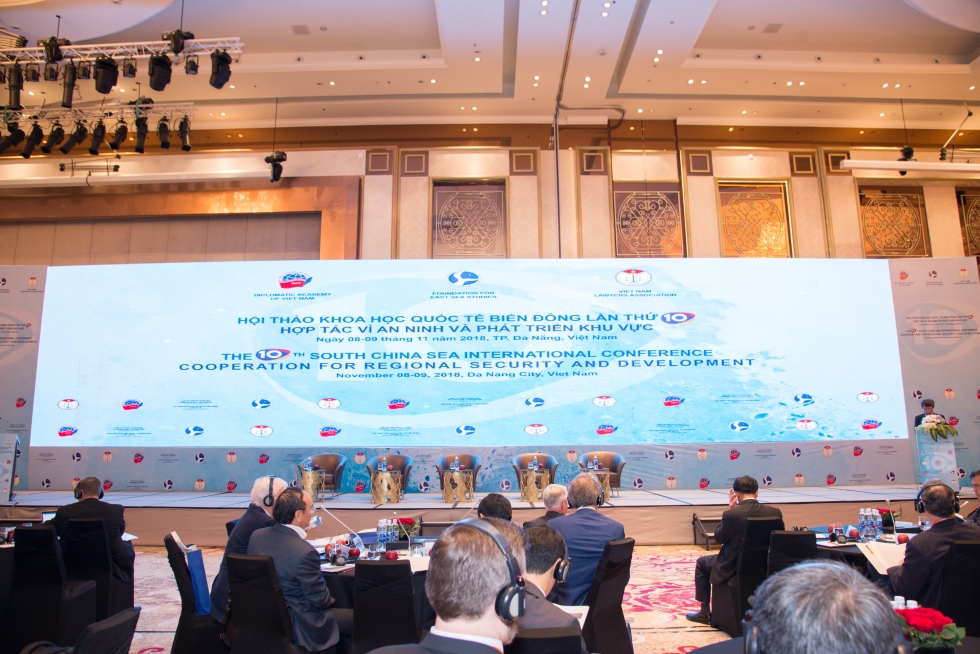 |
|
| SESSION 1: South China Sea: Heart of Indo-Asia-Pacific Region Moderator: Assoc. Prof. Nguyen Vu Tung, President of the Diplomatic Academy of Vietnam |
|
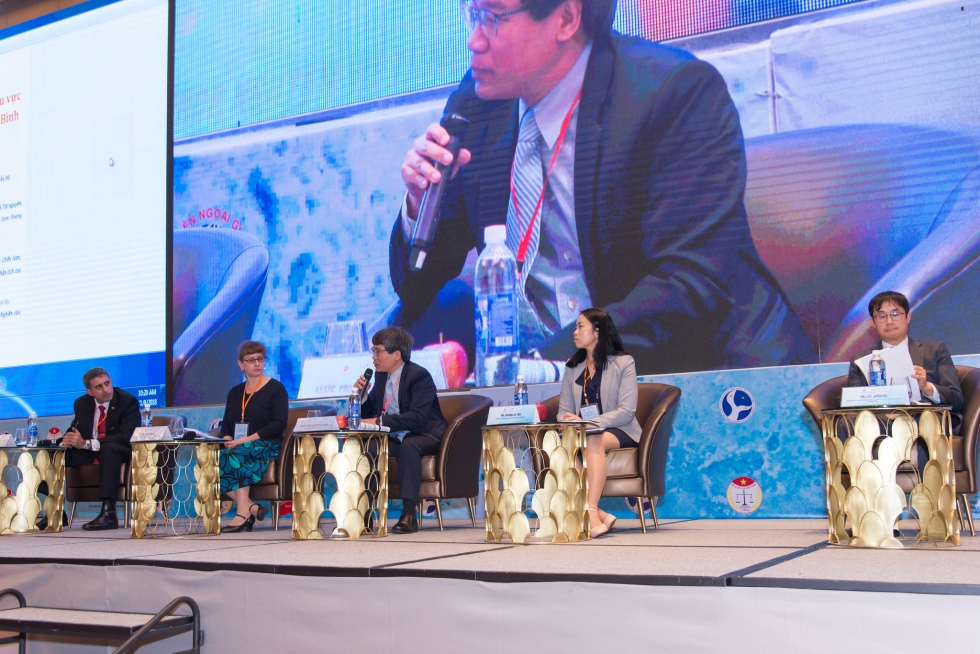 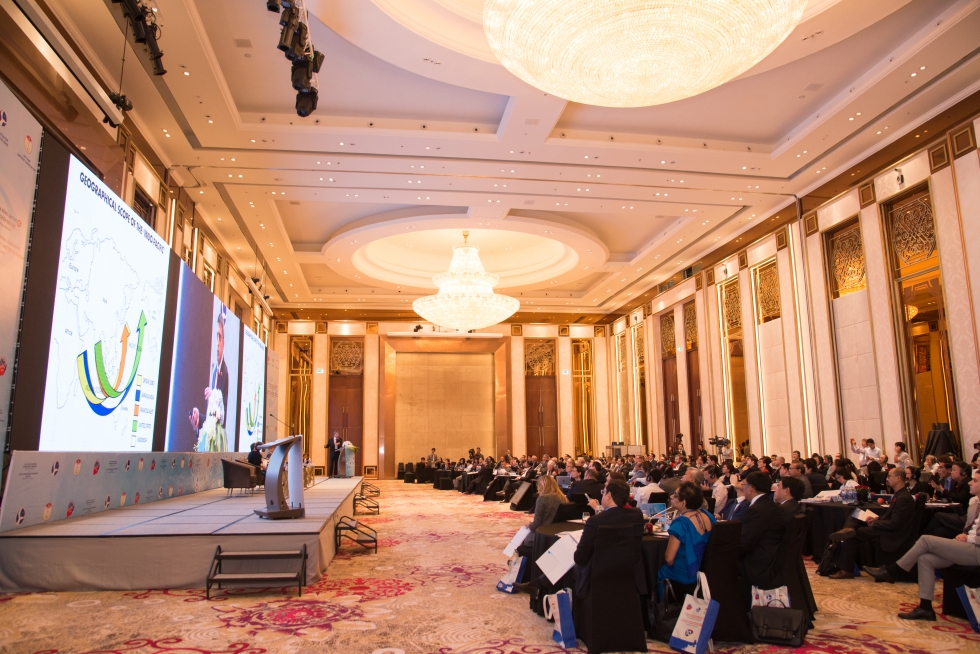 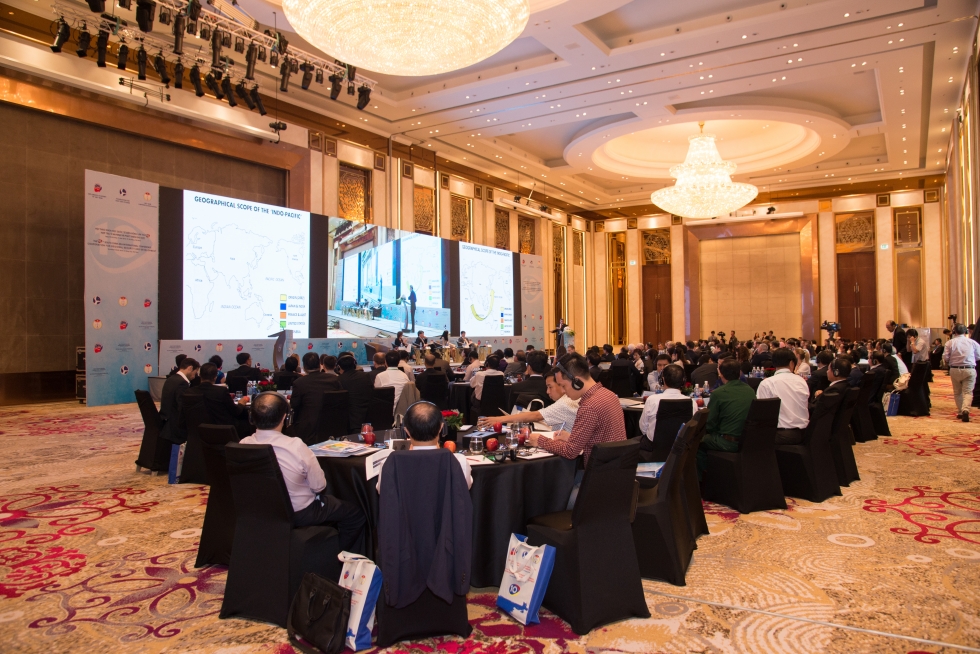 |
The last decade witnessed the rise and confluence of the Pacific and Indian Oceans, which have a potential of transforming the 21st century's Asian and international politics. Lying as a link between the two oceans and the transiting point between the Eurasian landmass and the Indo-Pacific maritime theatre, the South China Sea has seemingly been a fault line of tectonic changes across the broader region. Against this backdrop, this session looks into the broader geopolitical arena of the Indo-Asia-Pacific region to trace down how significant the South China Sea is in competing geopolitical strategies. It also explores how South China Sea developments have interplayed with those in the East China Sea, Indian and Pacific Oceans and transformed regional geopolitical seascape.
Speakers:
|
| SESSION 2: South China Sea in Spotlight: 10-Year Recap Moderator: Ms. Cleo Paskal, Associate Fellow, Energy, Environment and Resources Department and Asia-Pacific Programme, Chatham House |
|
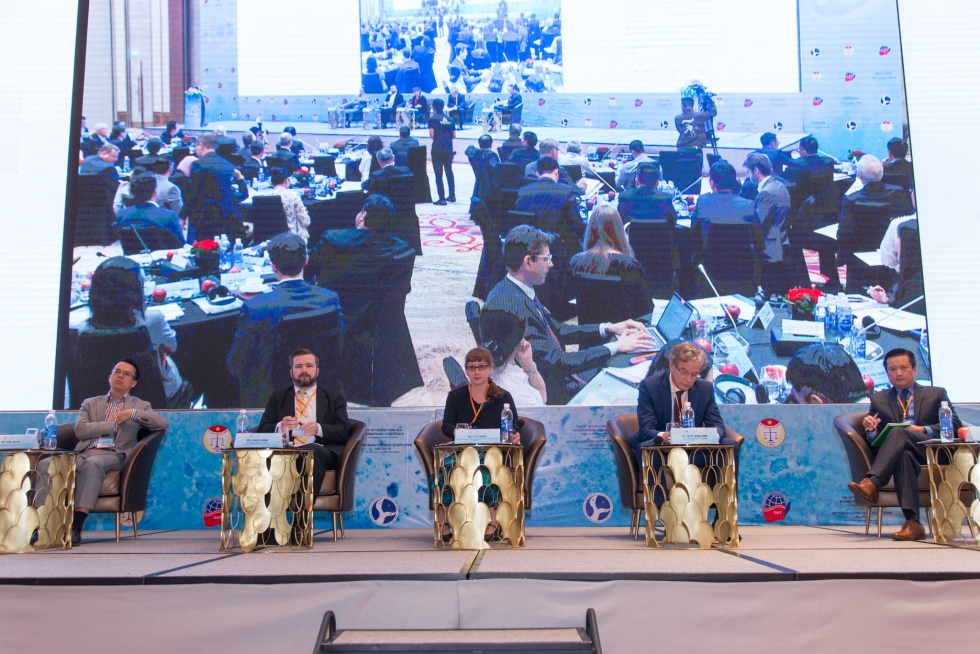 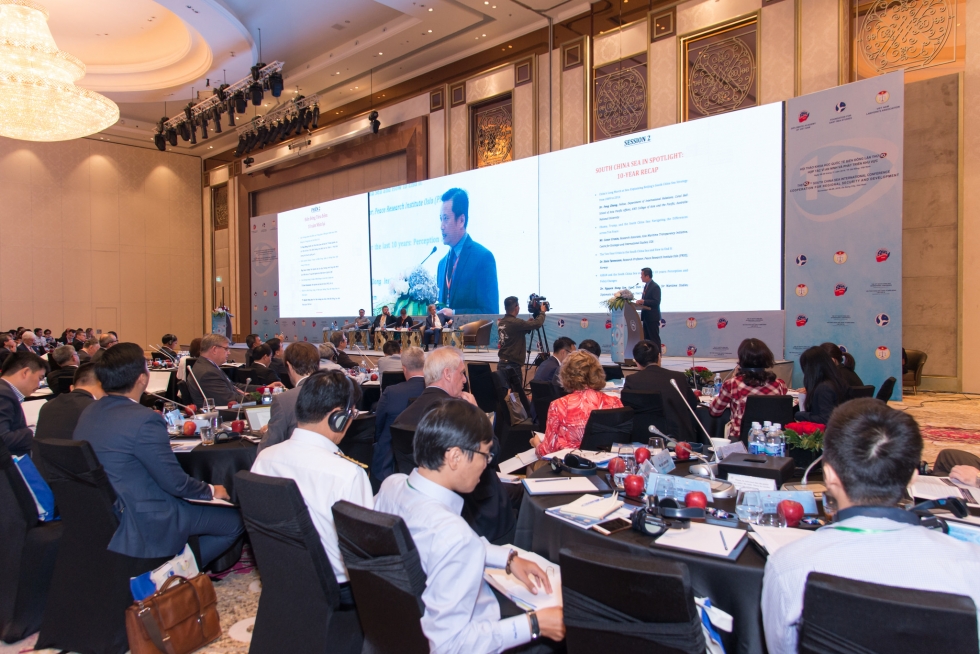 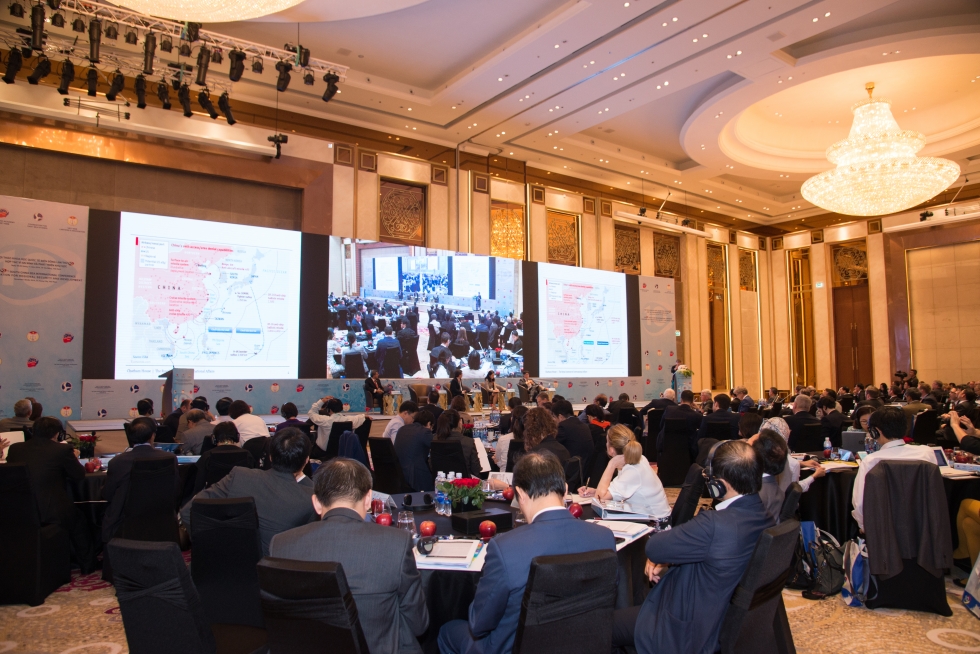 |
This session compares the state of affairs in South China Sea today with those ten years ago. It is designed to draw up endurances and changes on the ground, in the assessments of different governments, and in relations among claimants and powers concerned over related issues. It also examines different historiographies and narratives to chart out similarities and gaps in mentalities, perceptions, and interpretations, which then distorted realities and complicated the cycle of actions and reactions. Following ups and downs in the tension level, the panelists are required to identify major drivers behind those factual and mental changes.
Speakers:
|
| SESSION 3: Evolving Claims and Positions over the South China Sea: Continuities and Changes Moderator: Prof. Robert Beckman, Head of Ocean Law and Policy Programme, Centre for International Law, the National University of Singapore, Singapore |
|
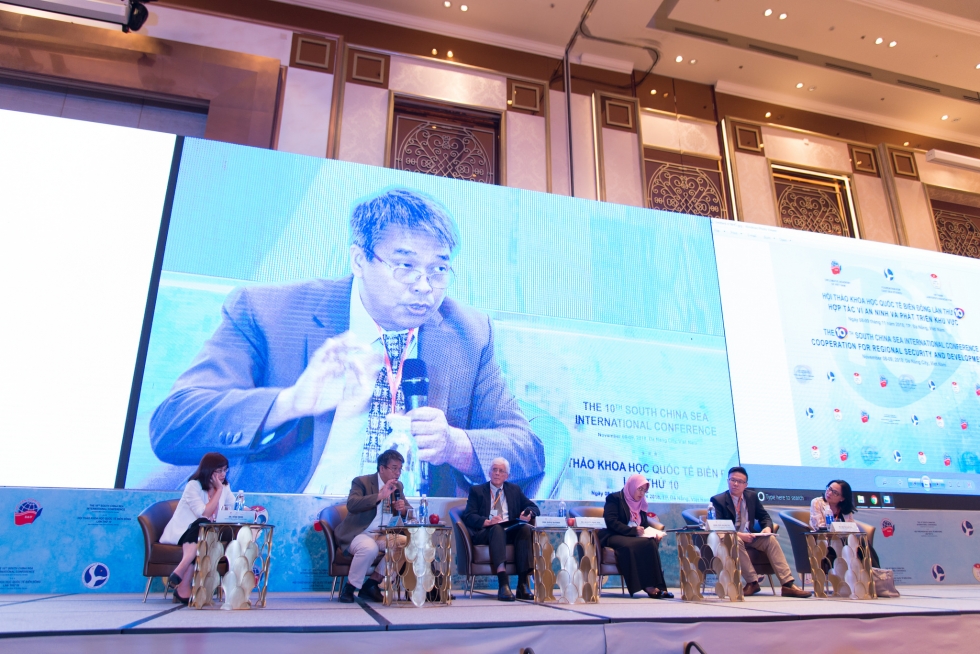 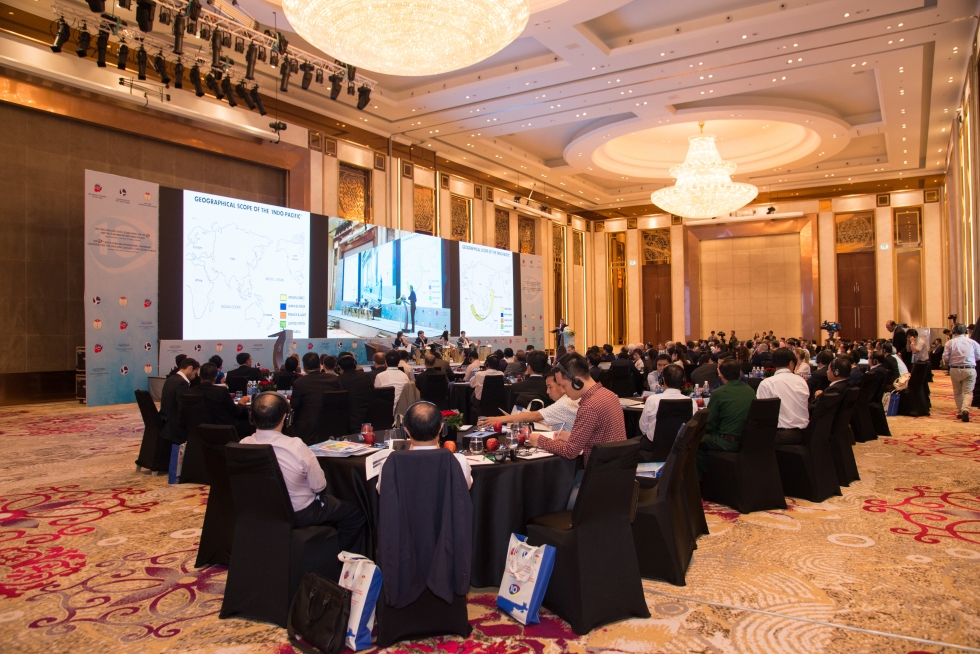 |
The session provides an updated assessment of developments with regard to concerned claimants' positions and claims over the period in study. The panelists are required to dig in their respective countries' official statements and domestic legislatures to map out continuities and changes in their application and interpretation of the law of the sea. As usual, factors figuring significantly behind firmness or flexibility are central to understand countries' outlook and approach to the current oceanic legal order. The claimant's responses to the historic arbitral ruling of the case between the Philippines and China on July 12, 2017 are of particular interest as they provide food for thoughts on how rewarding legal actions would have effects on states' behavior.
Speakers:
“A Forked Road: Change and Continuity In Philippine Law And Policy On The South China Sea” (Click for Presentation)
“Malaysia’s Claims and Positions over Maritime Features in the South China Sea” (Click for Presentation)
|
| SESSION 4: Major Powers: Engagements or Disengagements? Moderator: Dr. Nong Hong, Executive Director & Senior Fellow, Institute for China - America Studies (ICAS), China |
|
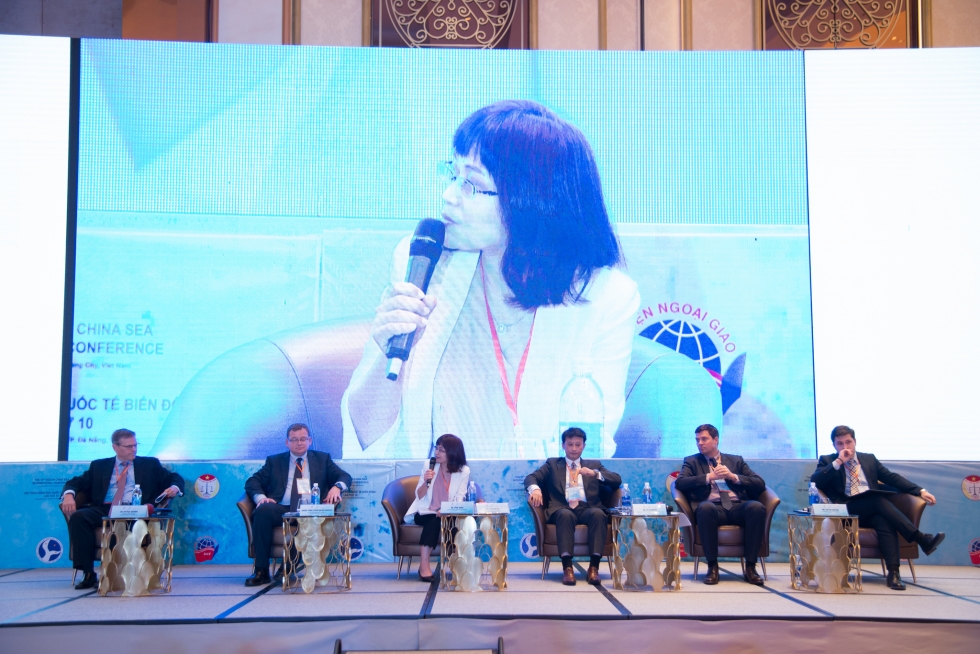  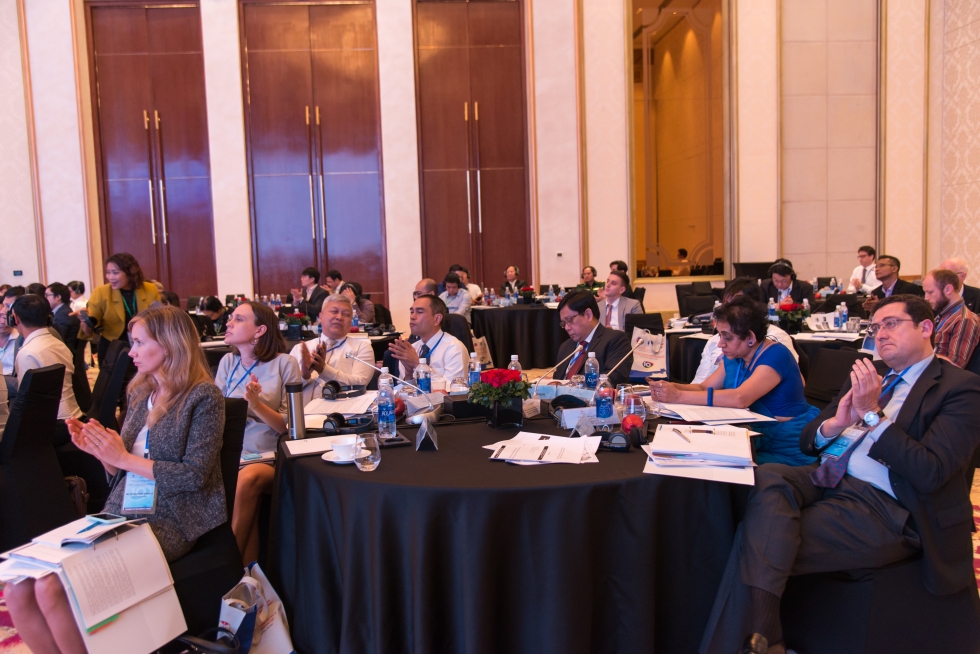 |
The South China Sea is a body of waters of global importance as it straddles important Sea Lines of Communication. There exists an argument that major powers' naval presence and activeness created insecurity and prompted regional militarization. The other genre of reasoning is that their involvements in regional affairs are attributed to anxieties about potential impediments to freedom of navigation and overflight as well as the existential challenge to the current legal. This session takes stock of shifts in major powers' positions over and policies toward the South China Sea and explores the dynamics of and rationality behind these changes.
Speakers:
|
| DAY 2 Thursday - November 8, 2018 |
|
| SESSION 5: Force Build-up in the South China Sea Moderator: Prof. Carlyle Thayer, University of New South Wales at the Australian Defense Force Academy, Australia |
|
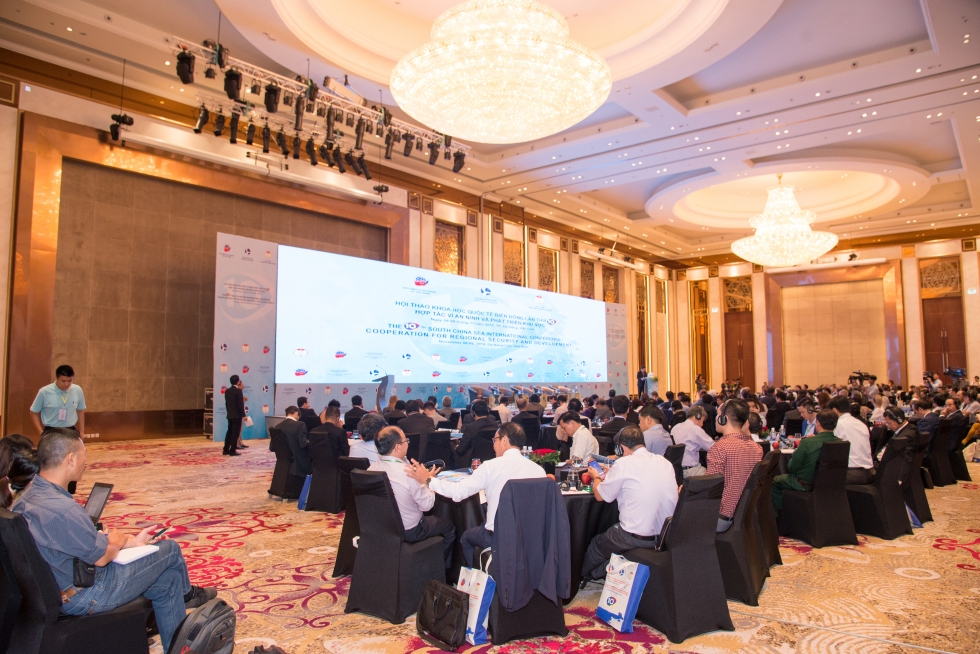  |
This session is devoted to discuss shifts in the balance of power and measure the risks for armed clashes in the South China Sea. After a decade from Impeccable Incident in 2009, the sea is more congested by the deployment of greater number of naval and air assets, law enforcement ships, militia flotilla, and different types of autonomous mediums. The Spratlys and Paracels have been turned into fortresses with logistic centers, radar facilities and combatting platforms. The panelists are tasked with examining different maritime capability components to identify competitive edges among different rivals, their strategic thoughts and strategies, and the potentials of confrontations and conflicts.
Speakers:
|
| SESSION 6: Confidence Building, Preventive Diplomacy, and Dispute Resolution Moderator: Mr. Robert Harris, Assistant Legal Adviser for East Asia and Pacific Affairs, United States Department of State |
|
  |
This panel is designed to review the progress in confidence building, preventive diplomacy, and dispute resolution efforts in the South China Sea. Despite simmering tensions over the last decade, some positive developments took place. After agreeing on the framework, ASEAN and China started substantive negotiation on the code of conduct since early 2018. The two sides already put in place hot lines for emergency and discussed the extension of the application of CUEs to the coast guard. Talks on joint development and maritime delimitation are also underway between different parties. Against this backdrop, panelists are tasked with taking stock of the most significant processes, probing the progress and stumbling blocks, and discussing their prospects.
Speakers:
|
| SESSION 7: Emerging Disrupters to Maritime Order in the South China Sea Moderator: Dr. Stein Tønnesson, Research Professor, Peace Research Institute Oslo (PRIO), Norway |
|
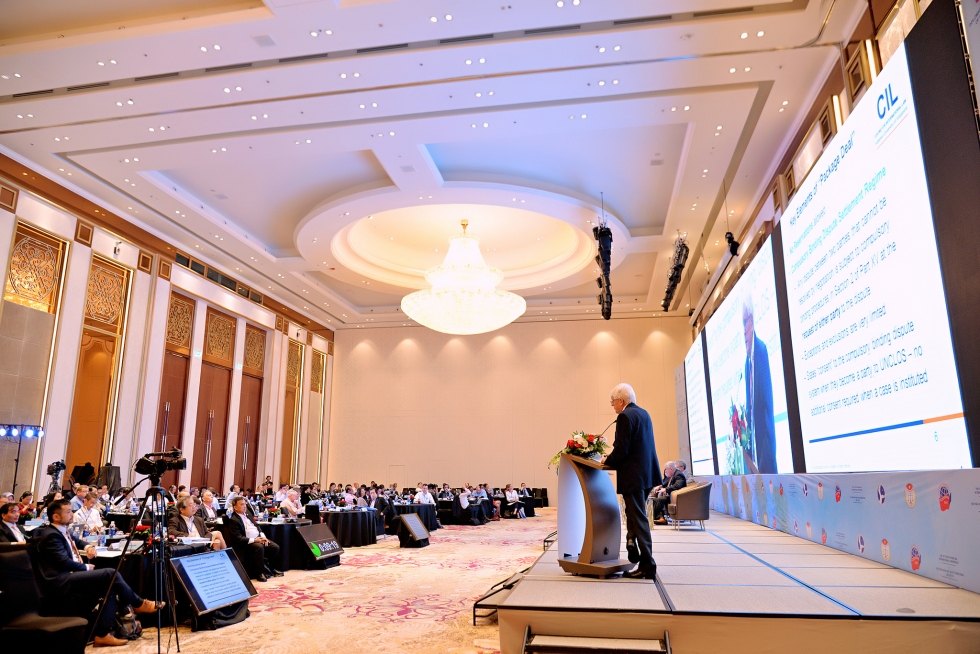 |
The session deals with newly arising problems that have the potential of disrupting the order in the South China Sea. Technological and scientific advancements have not only opened up new frontiers for competition, such as cyber space or deep-sea mining, but also blurred the boundary between civility and military and between man and nature. Climate change and marine environmental degradation caused by destructive human activities are also at the magnitude, which would pose significant disruptions to marine ecology with severe consequences to coastal communities and their economic activities. Denial and non-compliance may also activate reciprocal outlawed responses, which systematically crack legal order at sea.
Speakers:
“Force and Coercion in the South China Sea: Why does it matter in International Law?” (Click for Presentation)
|
| SESSION 8: Order and Disorder in the SCS: Recap and Forward Moderator: H.E. Ambassador Le Cong Phung, Vice Chairman, The Foundation for East Sea Studies (FESS) |
|
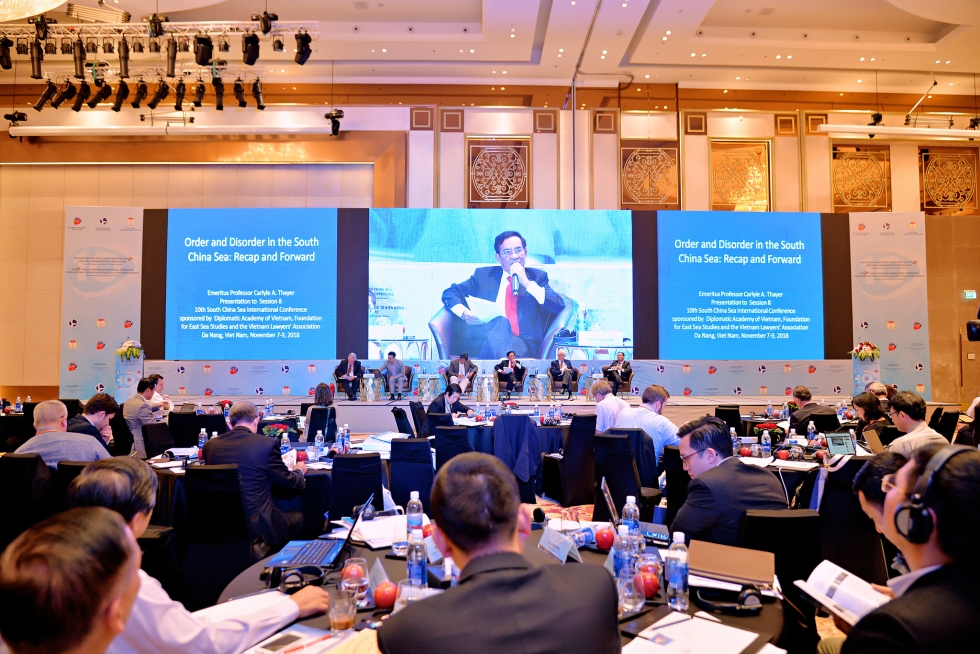 |
The rule-based order in the South China Sea is under serious challenge. It can be replaced by an order based on power hierarchy, or a kind of hybrid between right and might, or even disarray. Which type of order would bring greater security, prosperity and sustainability for the region? The session lays the ground for discussion on the nature of transformations in the last decade and on the prospect for peace and stability in the South China Sea in the decade to come. It is also tasked to draw lessons for improving management and regulation of the South China Sea for the sake of regional security and prosperity.
|
|
|


